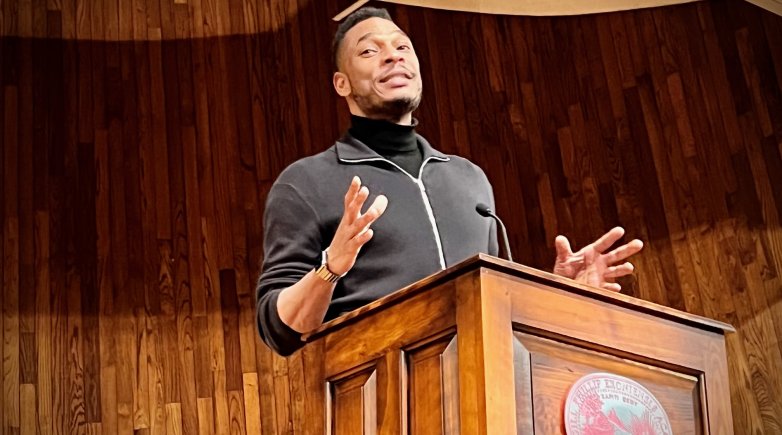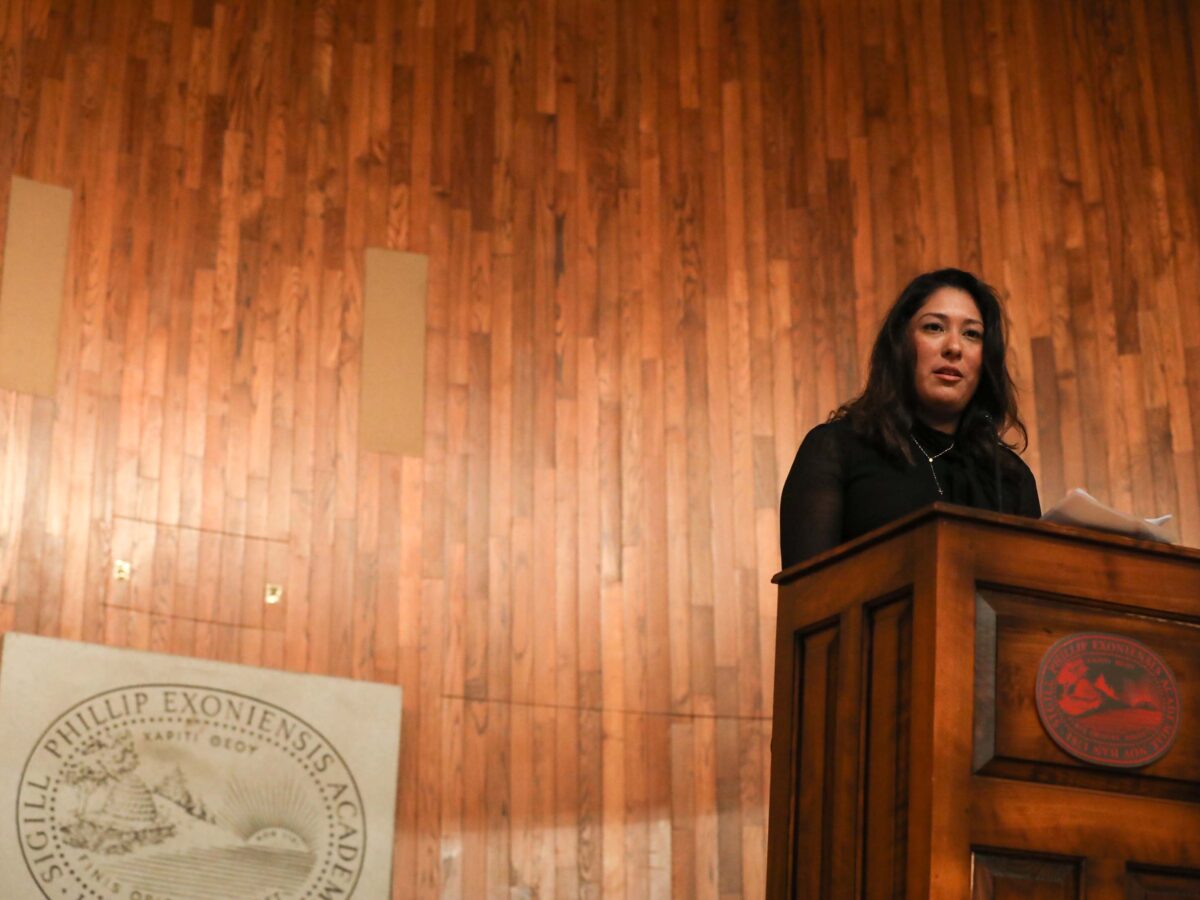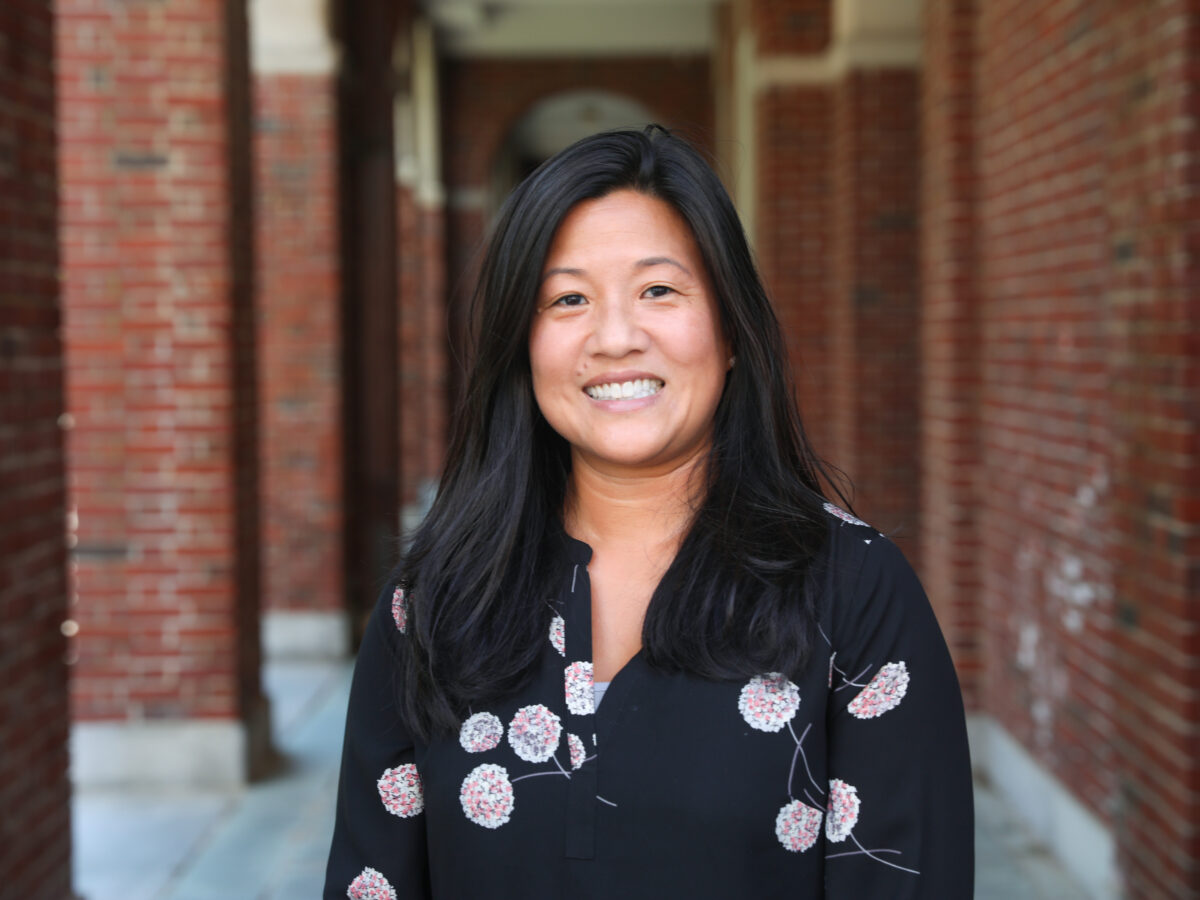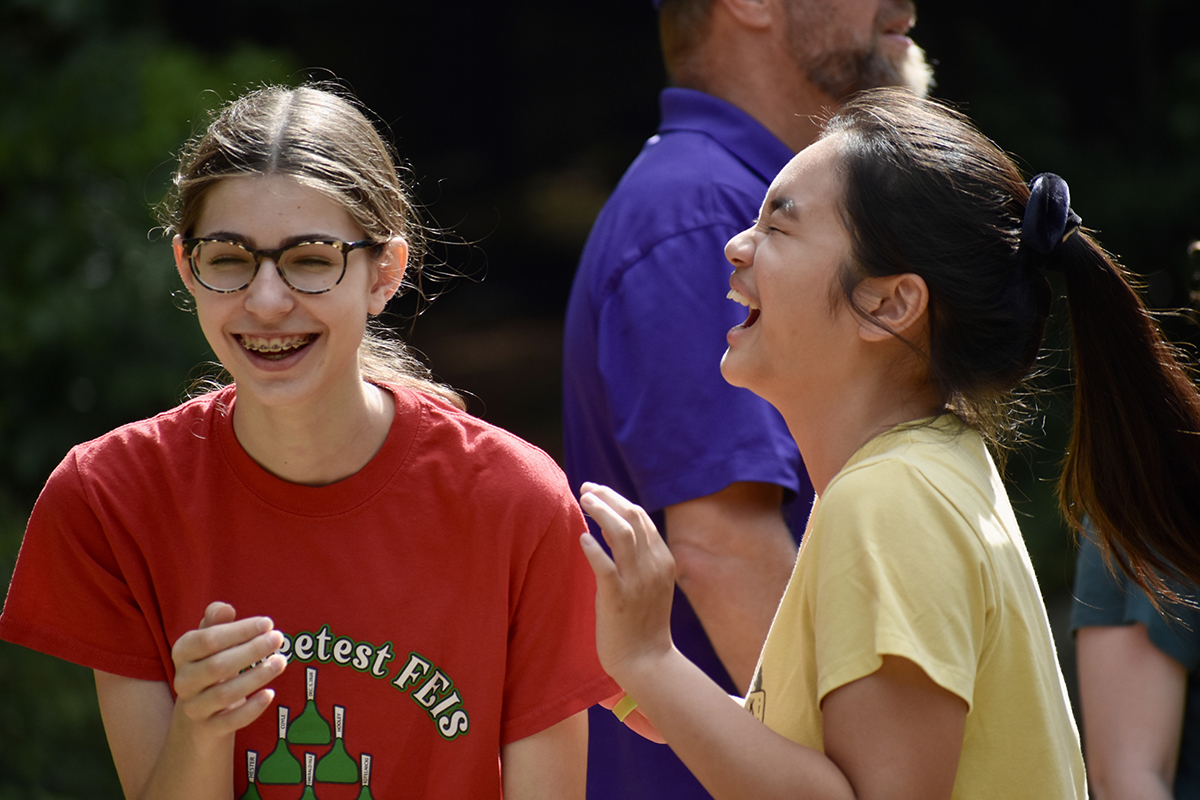Our objective is to teach you how to think, not what to think, and the focus, inside and outside the classroom, will always be on knowledge and goodness.”Principal Bill Rawson '71; P'08
Assembly presentation empowers students to confront harassment
In Assembly Hall on Tuesday, Exeter students got some practical tips on how to deal with various types of harassment not only when it happens to them, but also when they witness it happening to someone else.
“Our mission today is to empower y’all as individuals and as a community to stop the harassment that is happening in Exeter,” said Heidi Lersch, a trainer from Right To Be, a nonprofit group with a mission to end harassment in all forms. Lersch added that they had received many anonymous submissions prior to the training from students sharing information about some of the harassment they had experienced in the community.
Launched in 2005 as Hollaback!, a grassroots organization that helped support people who had experienced street harassment, Right To Be trains individuals and communities in conflict prevention and de-escalation. Their trainings teach bystanders how to intervene when they see harassment happening, and they operate an online platform, HeartMob, where people facing online harassment can seek support.
In an illustration of the power that bystanders can wield, Lersch shared research showing that only 25% percent of people who have experienced harassment said someone had helped them. But when people did step in, 79% of those being harassed said that the intervention improved the situation. After sharing those stats, Lersch and their co-trainer, Dax Valdes, spoke about the origins of harassment — which can range from catcalling to racist micro-aggressions to more explicit physical threats — in bias, both explicit and implicit. They also stressed how people’s identities affect how they move through public spaces and how they deal with harassment they might experience or witness.
The bulk of the presentation covered practical advice, as Lersch and Valdes laid out a set of tactics they called the “Five Ds” (Distract, Delegate, Document, Delay and Direct) that can help bystanders intervene when they see harassment happening either online or in in-person interactions.
Valdes and Lersch urged students to trust their guts and prioritize their own safety when considering how to address harassment as a bystander. “You don’t have to intervene directly,” Lersch said. “You don’t have to be the big superhero that has the wittiest comeback. That’s not what bystander intervention looks like. You can do something as simple as just checking on the person who was harassed and making sure that they’re OK.”
Throughout the interactive training, students responded to several anonymous polls using the Slido app, answering questions such as “What examples of harassment have you witnessed or experienced?” and “What are the impacts of harassment?” They reported impacts ranging from psychological fallout (anxiety, depression and PTSD) to social and economic costs (missing school or work, limiting mobility), making it clear the heavy toll such experiences are taking on many current Exonians.
Near the end of their presentation, the Right To Be trainers challenged the audience to think about how Exonians can work together as a community to prevent such harassment. “We are providing some resources and knowledge and then it’s also up to you to carry this forth,” Valdes said. “It’s not just the students in the Assembly Hall but it’s also the faculty who are hearing this information…and thinking about what can we do to keep each other safe.”








 Breen led Exeter to a 96-44-5 overall record during her 10 years at the helm of the program while matriculating dozens of players to the college ranks.
Breen led Exeter to a 96-44-5 overall record during her 10 years at the helm of the program while matriculating dozens of players to the college ranks.





 trust each other to literally stay safe.”
trust each other to literally stay safe.”
